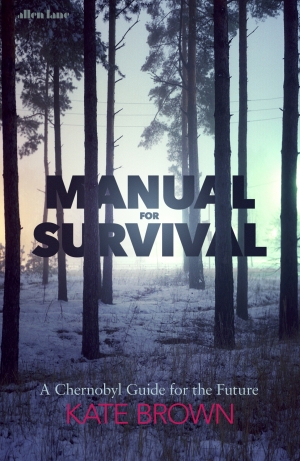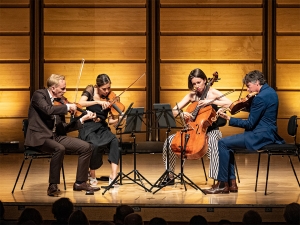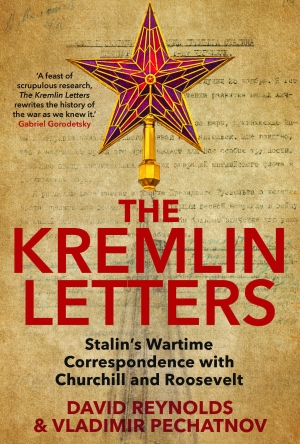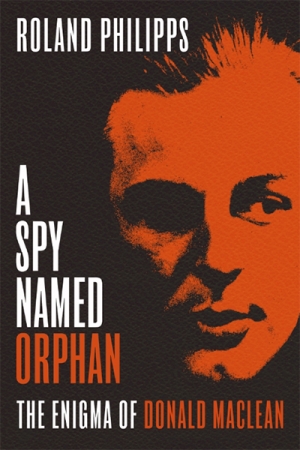Sheila Fitzpatrick
Stuart Macintyre reviews 'White Russians, Red Peril: A Cold War history of migration to Australia' by Sheila Fitzpatrick
As readers of her two volumes of memoirs will know, Sheila Fitzpatrick trained at the University of Melbourne until departing for Oxford in 1964 to pursue doctoral research on the history of the Soviet Union. That took her to Moscow, where she gained access to Soviet archives. Fitzpatrick would make her name as an archival historian, in contrast to earlier Western scholars who relied, both of necessity and by inclination, on other sources; she showed remarkable ingenuity in using the officially sanctioned records.
... (read more)Sheila Fitzpatrick reviews 'The Last Million: Europe’s displaced persons from World War to Cold War' by David Nasaw
This is a book in the expansive American tradition of long, well-researched historical works on political topics with broad appeal, written in an accessible style for a popular audience. David Nasaw has not previously worked on displaced persons, but he is the author of several big biographies, most recently of political patriarch Joseph P. Kennedy.
... (read more)Sheila Fitzpatrick reviews 'Traitors and Spies: Espionage and corruption in high places in Australia, 1901–50' by John Fahey
I am a great fan of archives, and so is John Fahey, a former officer of an Australian intelligence service (the Defence Signals Directorate) turned historian. His previous book, Australia’s First Spies (2018), covered the same time period (1901–50) but focused on the good guys (our spies) rather than the bad ones (their spies). His itemised list of Australian, British, and US archival files consulted runs to several pages. Most of these are the archives of intelligence agencies. And here’s the rub: intelligence files contain many names, but not necessarily the names of actual spies.
... (read more)Sheila Fitzpatrick reviews 'The Ratline: Love, lies and justice on the trail of a Nazi fugitive' by Philippe Sands
Hunting Nazis is an almost guaranteed reading pleasure – the joy of the chase, plus the moral uplift of being on the side of virtue. I started Philippe Sands’s book with a sense both of anticipation and déjà vu. A respected British international human rights lawyer with the proven ability to tell a story, Sands should be giving us a superior version of a familiar product. Many readers will remember his book East West Street (2016), which wove together the Nuremberg trial, some family history, and the pre-war intellectual life of Lemberg/Lviv. The latter produced not only Raphael Lemkin, theorist of genocide, but also the lesser known Hersch Lauterpacht, theorist of crimes against humanity, as well as Sands’s maternal grandfather, Leon Buchholz.
... (read more)Sheila Fitzpatrick reviews 'Manual for Survival: A Chernobyl guide to the future' by Kate Brown
This is a very disturbing book. It’s not just the Chernobyl story, but also Kate Brown’s broader story about the worldwide but inadequately studied impact on public health of lifetime exposure to ‘chronic doses of man-made radiation from medical procedures, nuclear reactors and their accidents, and atomic bombs and their fall-out’. But let’s take Chernobyl first ...
... (read more)Nigel Westlake’s new quartet, Sacred Sky, commissioned by the Australian String Quartet, had its première before an enthusiastic audience at Sydney’s Recital Hall on 4 September 2019. Westlake wrote it in honour of his sister, the artist Kate Westlake, who died of pancreatic cancer in January 2018 ...
... (read more)Sheila Fitzpatrick reviews The Kremlin Letters edited by David Reynolds and Vladimir Pechatnov
Joseph Stalin wanted this wartime correspondence published, and one can see why: he comes off best. As the authors comment, ‘the transcript of the Big Three meetings demonstrates Stalin’s careful mastery of the issues and his superior skill as a diplomatist, regularly keeping his silence but then speaking out in a terse and timely manner at key moments’. He is ...
To celebrate the best books of 2018, Australian Book Review invited nearly forty contributors to nominate their favourite titles. Contributors include Michelle de Kretser
... (read more)Sheila Fitzpatrick reviews 'A Spy Named Orphan: The enigma of Donald Maclean' by Roland Philipps
Who doesn’t like to read about the Cambridge spies? Donald Maclean, Guy Burgess, Anthony Blunt, and Kim Philby were all students at Cambridge in the early 1930s when they were converted to communism and later recruited as Soviet spies. The Cambridge Four did decades of ...
... (read more)I don’t watch the World Cup or even Wimbledon, so I may have some Australian gene missing. But by the time the string quartet winners were announced at the end of the Melbourne International Chamber Music Competition last week, I had become a fan, almost a barracker. I was rooting for the ...
... (read more)









